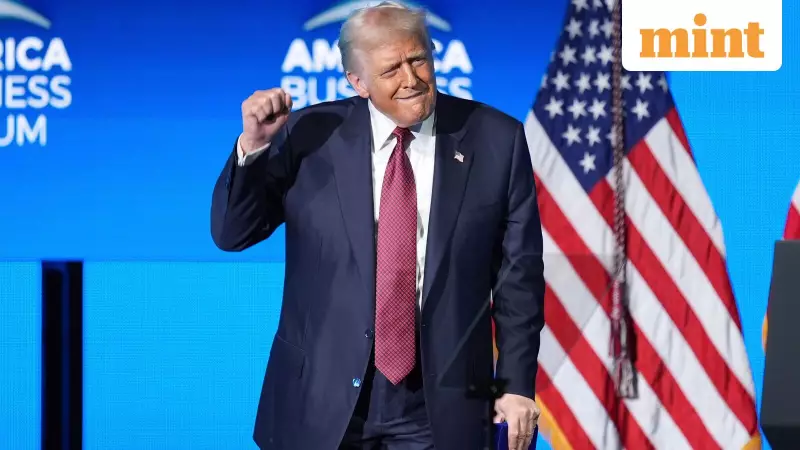
In a bold move that could reshape global trade dynamics, former President Donald Trump's proposal for universal tariffs is facing significant legal and economic headwinds. The controversial plan, which would impose a 10% tax on all imports entering the United States, is being characterized by experts as an unprecedented revenue grab that stretches constitutional boundaries.
The Constitutional Conundrum
Legal scholars are raising red flags about the proposal's viability, pointing to fundamental constitutional principles. The core issue revolves around whether a president possesses the authority to unilaterally impose such sweeping tariffs without congressional approval. Historical precedent suggests this power grab may not withstand judicial scrutiny.
"This represents one of the most aggressive expansions of executive trade authority ever contemplated," notes a prominent trade attorney. "The Constitution clearly allocates revenue-raising powers to Congress, making this proposal particularly vulnerable to legal challenges."
Economic Implications and Global Backlash
The economic consequences of such a tariff regime could be far-reaching:
- Immediate price increases for American consumers across all imported goods
- Potential retaliation from trading partners, triggering global trade conflicts
- Disruption to supply chains that have been carefully built over decades
- Negative impact on US exporters facing retaliatory measures abroad
International trade experts warn that the proposal could effectively dismantle existing trade agreements and undermine the rules-based international trading system that has governed global commerce for generations.
The Revenue Reality Check
While proponents argue the tariffs would generate substantial government revenue, economists question this assumption. The projected revenue gains might be offset by:
- Reduced import volumes as prices rise
- Economic slowdown affecting other tax revenues
- Implementation and enforcement costs
- Potential legal battles draining government resources
What appears on surface as a simple revenue solution could ultimately prove economically counterproductive, creating more problems than it solves.
Political Landscape and Implementation Challenges
The proposal arrives amid heightened political polarization, ensuring it will face fierce opposition from multiple fronts. Even if implemented, the administrative burden of collecting tariffs on every single imported product would strain customs authorities and create logistical nightmares for businesses of all sizes.
As the debate intensifies, one thing remains clear: this tariff proposal represents not just an economic policy shift, but a fundamental test of presidential power and constitutional limits that could redefine US trade policy for generations to come.






